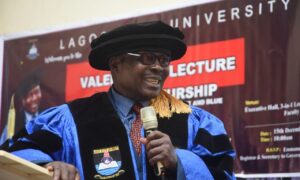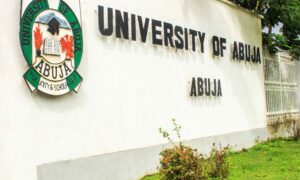The Nigerian government has announced an ambitious plan to transition all examinations to a fully computer-based testing system by 2027. This was revealed by the Minister of Education, Dr. Tunji Alausa, during the inauguration of the Committee on Improvement of Quality Examinations in Abuja.
The committee has been tasked with addressing key challenges in the education sector, standardizing examination practices, and ensuring fairness and quality. Dr. Alausa highlighted the government’s commitment to tackling the widespread issue of examination malpractices, emphasizing that the problem is multifaceted, involving not just students but also parents, teachers, school administrators, and exam supervisors.
The Minister stressed the importance of leveraging technology to improve the integrity of examinations. He outlined the government’s plan to implement computer-based testing across all examination bodies by 2027, a move aimed at reducing malpractice and ensuring more reliable assessments. He noted that a holistic approach is essential to address the root causes of malpractice, as all stakeholders play a role in perpetuating the problem.
To enhance the authenticity of examination results, Dr. Alausa announced that certificates issued by bodies such as WAEC, NECO, and NABTEB will now feature three key identifiers: the candidates’ national identification numbers, their photographs, and their dates of birth. He explained that this measure would ensure near-perfect certainty in identifying candidates and help combat identity theft in examinations.
Dr. Alausa also revealed that the government is committed to supporting these reforms with substantial investments in education under the leadership of President Bola Tinubu. These investments are geared toward human capital development and the long-term improvement of Nigeria’s educational standards.
The Minister warned that allowing examination malpractice to persist would undermine the efforts of diligent students and compromise the credibility of the education system. He reaffirmed the government’s determination to implement changes that will safeguard the integrity of examinations and promote a culture of fairness and excellence.
Chairman of the committee, Prof. Is-haq Oloyede, who also serves as the Registrar of the Joint Admissions and Matriculation Board, expressed gratitude for the confidence placed in him and other committee members. He pledged to carry out the assigned responsibilities promptly and diligently, ensuring that the reforms are effectively implemented.
The transition to computer-based testing and the introduction of enhanced security measures for examination certificates represent a significant step forward in addressing long-standing challenges in Nigeria’s education sector.
The Students Forum Nigeria serves as the ultimate hub for Nigerian students, fostering academic growth, social engagement, and knowledge sharing.






















